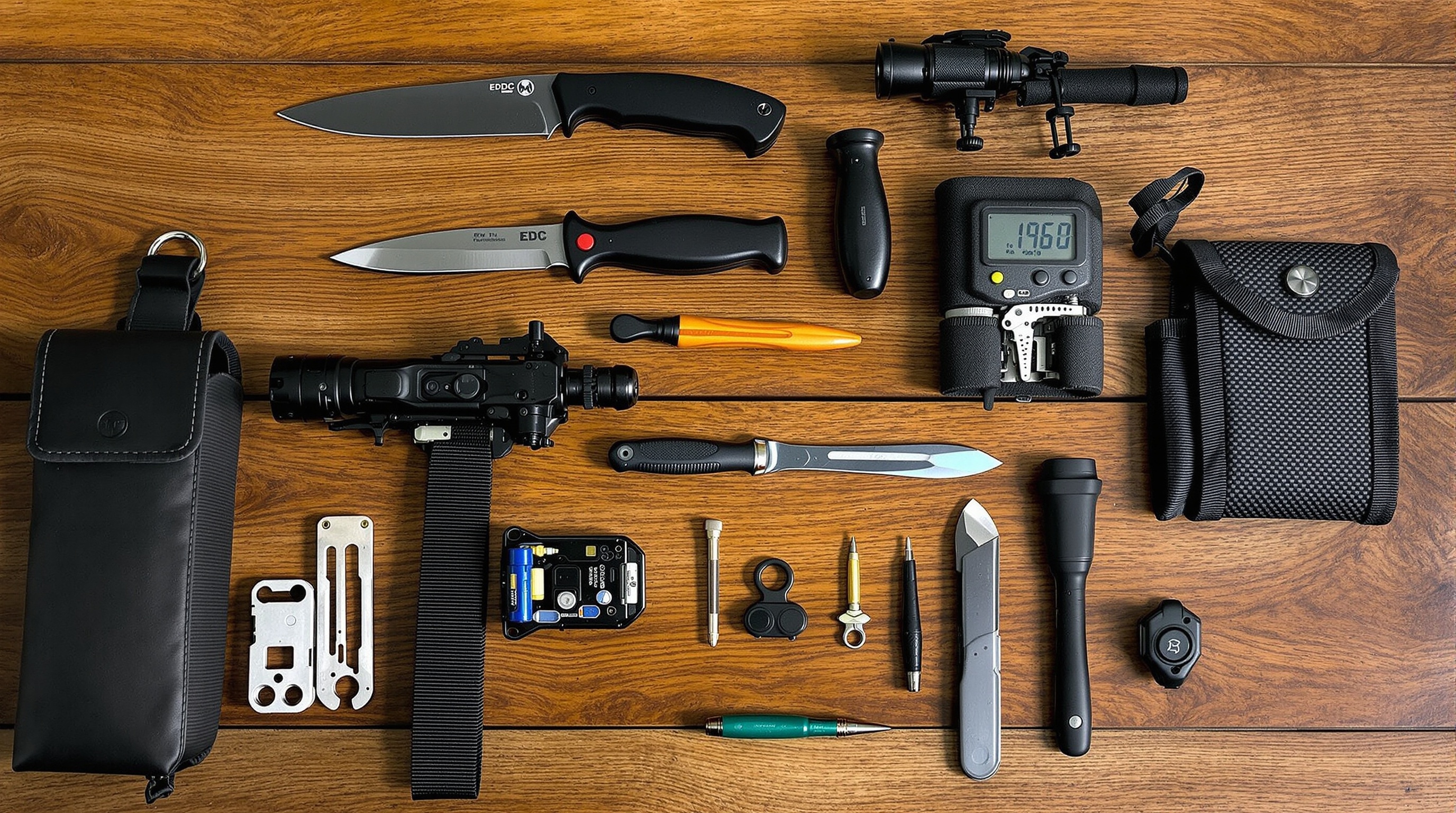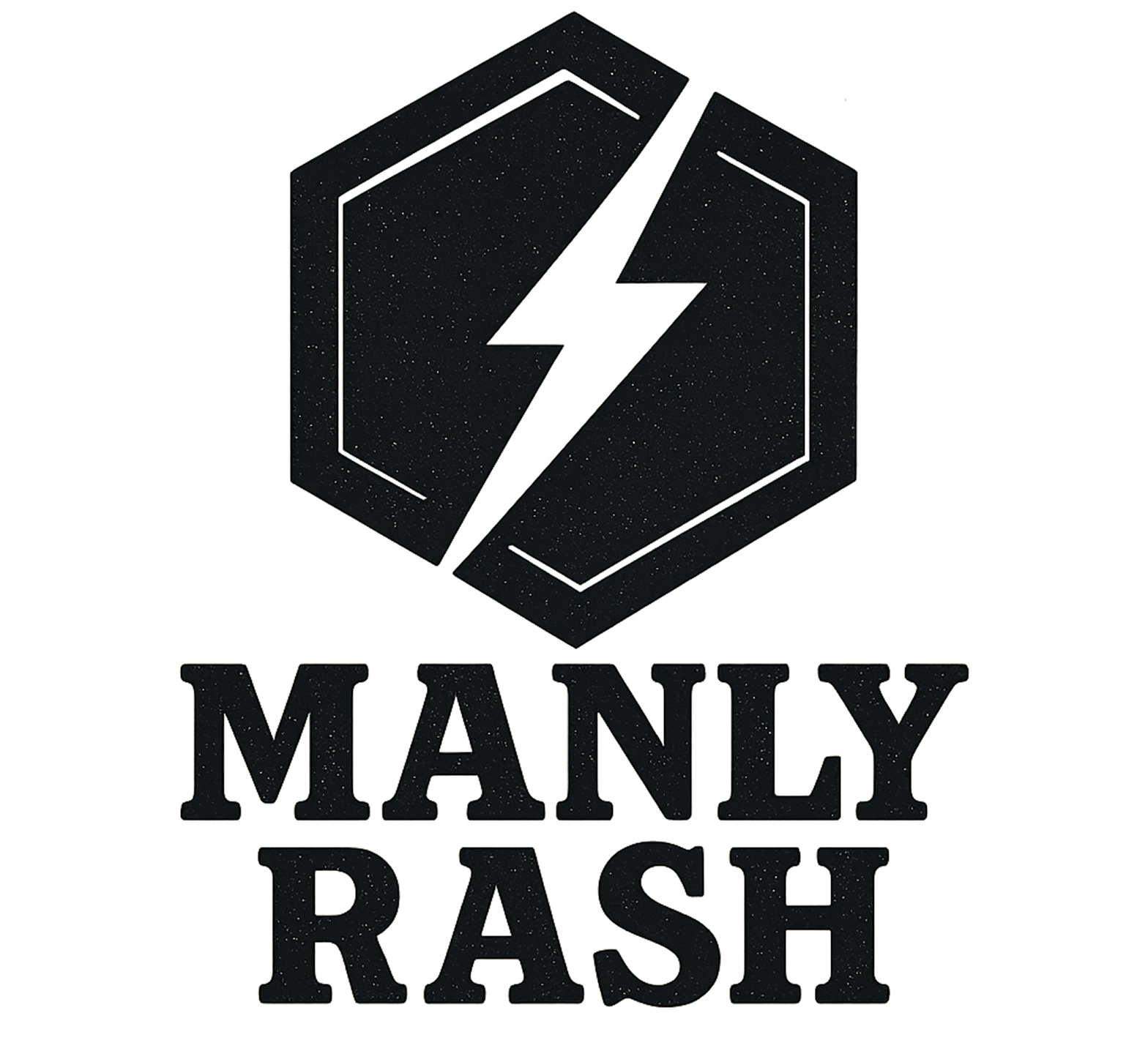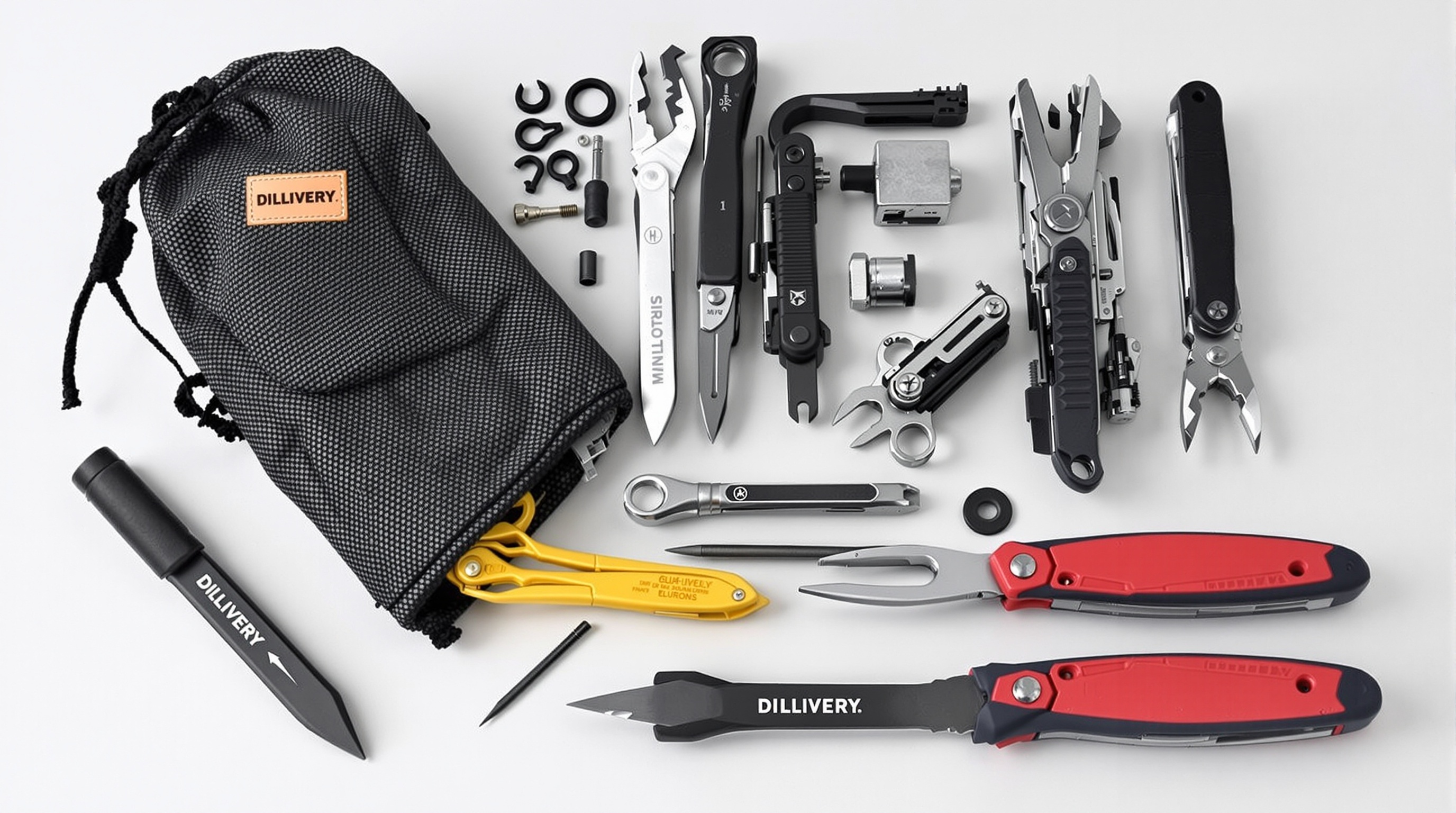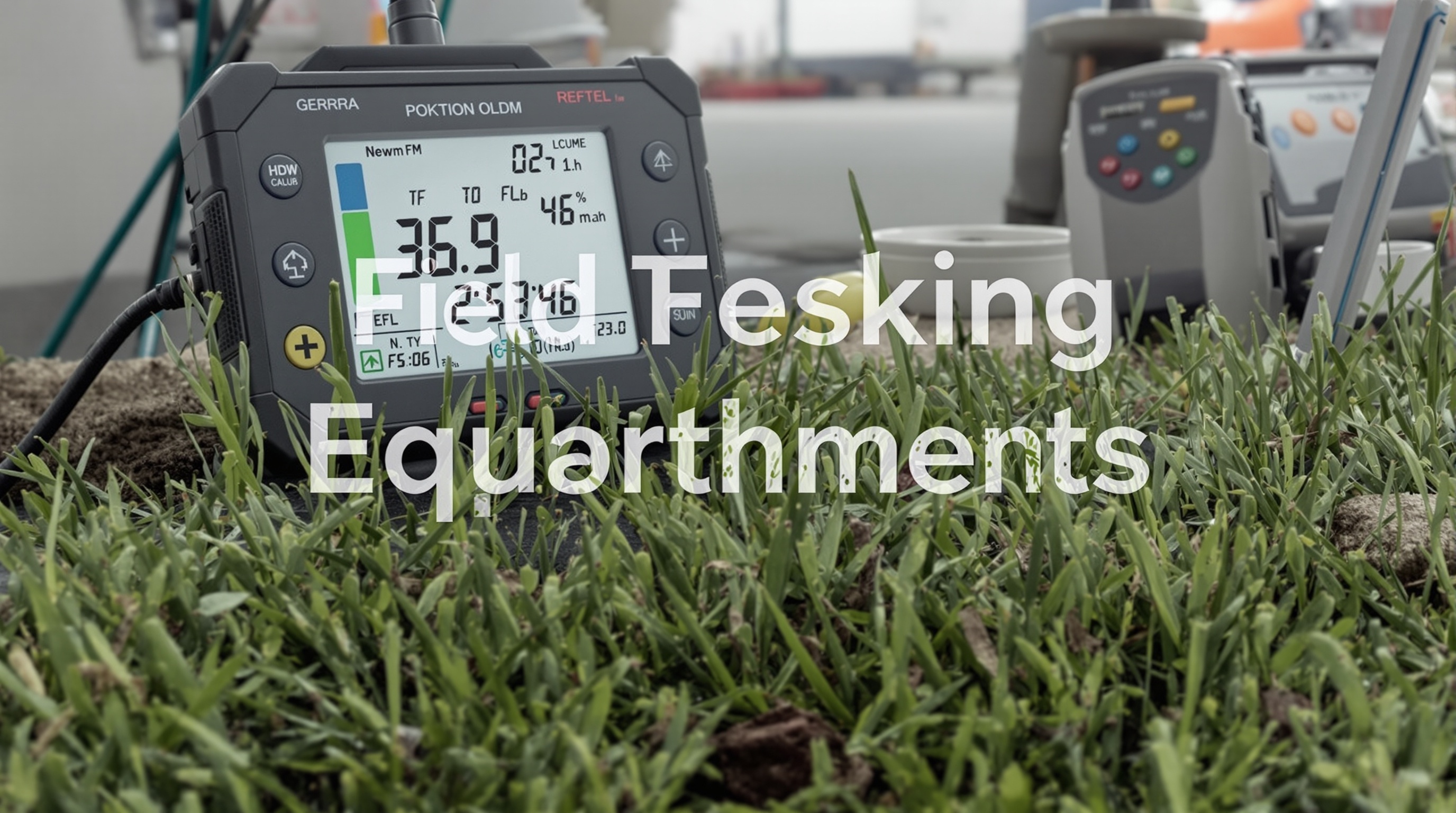Everyday Carry Tools: Top Picks & Guide for Daily Preparedness
Discover the best everyday carry tools for any situation. Learn how to build your EDC kit with multi-tools, flashlights, knives, and more in our complete guide.

Everyday Carry (EDC) tools are compact, functional items designed to help you handle daily tasks, minor fixes, and unexpected situations, whether you're at home, at work, or on the go. From multi-tools and knives to compact lights and keychain gadgets, EDC gear combines portability, practicality, and reliability. This guide will break down the types of everyday carry tools, how to choose the right ones, and how to build a personalized EDC setup for maximum efficiency and preparedness.
Understanding EDC Tool Basics
What Are EDC Tools?
EDC tools, short for Everyday Carry tools, are compact, functional items designed to assist with daily tasks and unforeseen situations. These tools fit easily in a pocket, bag, or keychain and are chosen for their portability, durability, and practicality. The concept of EDC stems from preparedness and efficiency — allowing individuals to navigate minor repairs, personal needs, and emergencies with ease.
Primary Categories of EDC Tools
EDC tools cover a broad spectrum of categories, each tailored to serve specific functions. The most common types include:
- Multi-tools: These compact toolsets combine several functions such as pliers, knives, screwdrivers, and scissors into one portable unit.
- Knives and cutting tools: Folding knives, utility blades, and mini box cutters are prized for their versatility and ease of carry.
- Flashlights and light sources: Small, high-lumen LED lights help in low-light conditions, often with USB-rechargeable options.
- Pry bars and mini crowbars: Useful for opening crates, removing nails, or lifting objects without damaging them.
- Writing instruments: Tactical pens and durable ballpoints ensure reliable writing on the go.
- Fire starters and survival gear: Compact ferro rods or butane lighters offer preparedness in outdoor or emergency scenarios.
The Purpose of EDC Tools
The core purpose of EDC tools is readiness. Whether it’s opening packages, tightening a loose screw, or navigating a sudden power outage, EDC gear equips users with immediate solutions. For professionals, hobbyists, and urban dwellers alike, these tools reduce dependency on larger toolkits or external help for minor tasks.
Benefits of Carrying EDC Tools
- Convenience: Having essential tools within reach saves time and energy.
- Preparedness: EDC tools support emergency readiness, especially in outdoor or travel scenarios.
- Customization: Users can tailor their daily carry to their lifestyle, profession, or environment.
- Minimalism: Compact and lightweight, EDC tools promote a minimalist approach to utility.
Material and Build Quality Considerations
When selecting EDC tools, materials play a vital role. High-grade stainless steel, titanium, and aircraft-grade aluminum are commonly used for their strength, corrosion resistance, and lightweight properties. Ergonomic design and secure locking mechanisms also enhance usability and safety.
Legal and Travel Considerations
While EDC tools are designed to be carried daily, it’s important to consider local and international laws, especially when traveling. Items like knives or multi-tools with blades may be restricted in carry-on luggage or in certain public spaces. Always check regulations beforehand to ensure compliance.
Everyday Carry vs. Tactical and Survival Tools
EDC tools often overlap with tactical and survival gear, but there are distinctions. Tactical tools are typically built for defense or military-grade applications, while survival tools focus on outdoor emergencies. EDC tools balance both worlds, offering practical daily use with enough versatility for unexpected challenges.
How to Choose the Right EDC Tool
When selecting EDC tools, consider the following:
- Functionality: Does the tool solve the challenges you face daily?
- Size and weight: Will it comfortably fit in your pocket or bag?
- Durability: Is it built to withstand regular use?
- Ease of use: Can it be operated quickly and safely?
- Design: Does it align with your personal or professional aesthetics?
Understanding these basics empowers users to build a toolkit that enhances productivity, problem-solving, and peace of mind in everyday life.
Essential EDC Multi-Tools
Everyday carry (EDC) multi-tools are compact, versatile instruments designed to provide functionality in a portable form. Whether for urban tasks, outdoor adventures, or emergency readiness, these tools combine utility and convenience to support a range of daily activities.
Key Features and Capabilities
EDC multi-tools typically include several core implements such as pliers, screwdrivers, scissors, bottle openers, and knife blades. Advanced models may offer wire cutters, saws, can openers, tweezers, and even fire starters. The goal is to integrate as many practical tools as possible within a compact, foldable design.
Many multi-tools are made of stainless steel or titanium for durability and corrosion resistance. Some are designed with one-handed opening mechanisms or locking tools for added safety. Features like spring-loaded pliers, replaceable components, and ergonomic grips also improve usability.
Common Applications
Multi-tools are popular for a variety of everyday tasks such as tightening screws, opening packages, cutting rope, or making minor repairs. They're also invaluable in outdoor settings for camping, fishing, hunting, or hiking. In urban environments, EDC multi-tools assist with tech repairs, household maintenance, or emergency preparedness.
Professionals in construction, law enforcement, and emergency services often rely on higher-grade multi-tools for job-specific applications. Meanwhile, casual users benefit from compact, lightweight models designed for daily convenience.
Professional vs Consumer Models
Professional-grade multi-tools are built with premium materials, enhanced toolsets, and higher tolerances for frequent use. These are often used by tradespeople, first responders, and military personnel. Brands like Leatherman, Gerber, and Victorinox manufacture specialized tools for such users.
Consumer models, on the other hand, prioritize portability and affordability. These tools are commonly found on keychains or in glove compartments, offering essential functionality for everyday scenarios. While not as rugged as professional versions, consumer multi-tools strike a balance between performance and practicality.
Selection Criteria
When choosing an EDC multi-tool, several factors should be considered:
- Tool Set: Identify which tools are most relevant to your lifestyle. For instance, a cyclist might prioritize hex wrenches, while a camper may prefer a multi-tool with a firestarter.
- Size and Weight: Compactness is critical for everyday carry. Consider whether you’ll carry it in a pocket, on a keychain, or in a bag.
- Build Quality: Look for durable materials, solid construction, and smooth operation. Tools with locking mechanisms and replaceable parts tend to offer better longevity.
- Brand Reputation: Established brands often provide better warranties, customer support, and reliability. Popular options include Leatherman, SOG, CRKT, and Swiss Army/Victorinox.
- Legal Compliance: Some jurisdictions have restrictions on blade length or certain tools. Ensure your chosen multi-tool complies with local laws, especially for air travel or international use.
EDC multi-tools are a cornerstone of any gear setup. By selecting the right model with the appropriate features and build quality, users can ensure they’re prepared for a wide range of daily challenges.
Specialized EDC Tools
Everyday Carry (EDC) tools have evolved beyond basic utility items to include highly specialized implements designed to meet specific needs across professions, hobbies, and lifestyles. These tools offer targeted functionality, compact designs, and rugged construction, making them indispensable for users who require more than general-purpose gear.
Tactical Pens
Tactical pens are multifunctional writing instruments designed for durability and self-defense. Made typically from aircraft-grade aluminum, titanium, or stainless steel, these pens can be used for writing in harsh conditions but also double as a glass breaker or striking tool in emergencies. Many include hidden features like handcuff keys or fire starters, making them ideal for law enforcement, military personnel, and survivalists.
Pry Bars and Pocket Pry Tools
Mini pry bars are compact tools used for opening crates, scraping surfaces, or removing nails without damaging the surrounding structure. Often crafted from titanium or hardened steel, EDC pry tools are small enough to fit on a keychain or in a pocket organizer. They are popular among technicians, mechanics, and tinkerers who require non-blade tools for leverage and separating materials.
Pocket-Sized Hex and Bit Drivers
These tools are tailored for users who frequently work with electronics, cycling gear, or modular equipment. Pocket hex drivers and bit kits often feature magnetic heads and come with a selection of interchangeable bits (Phillips, flathead, Torx, hex, etc.). Some models include rotating caps for one-handed use and are precision-machined for tight tolerances, making them ideal for field repairs and adjustments.
Compact Utility Blades and Scalpel Knives
Designed for precision cutting, compact utility blades and scalpel-style knives offer more control and accuracy than traditional folding knives. These tools are favored in crafts, design, and medical fields, and often feature quick-change mechanisms for blade replacement. Their non-threatening size and appearance also make them more socially acceptable for urban EDC.
Pocket Wrenches and Multi-Spanners
Pocket wrenches are slim, flat tools that offer multiple wrench sizes in one compact form. Laser-cut from hardened steel or titanium, these tools can fit nuts and bolts of various sizes and are commonly used by cyclists, outdoor adventurers, and field engineers. Some versions also include bottle openers, screwdrivers, and bit holders, adding to their versatility.
Keychain-Sized Tools
Keychain tools are designed to maximize utility while minimizing size. These can include miniature screwdrivers, bottle openers, tweezers, fire starters, and even tiny folding knives. Many are TSA-friendly, making them suitable for frequent travelers who want to maintain basic tool functionality while adhering to travel regulations.
Specialized Cutting Tools
Beyond traditional EDC knives, there are a variety of specialized cutting tools designed for specific tasks. These include rescue cutters for seatbelts, rope cutters, and ceramic-blade safety cutters. Used by first responders, sailors, and warehouse workers, these tools focus on safety, speed, and precision in emergency or task-specific scenarios.
EDC Flashlights with Tactical Features
While general-purpose flashlights are common in EDC setups, specialized models offer advanced functionality such as strobe modes for self-defense, infrared filters for night operations, and programmable brightness levels. These tools often feature hard-anodized finishes, waterproof ratings (IPX8 or higher), and rechargeable power sources, making them suitable for tactical, medical, and industrial use.
Titanium and Carbon Fiber Tools
Materials matter in specialized EDC tools. Titanium offers a high strength-to-weight ratio, corrosion resistance, and non-magnetic properties, making it ideal for aerospace and marine applications. Carbon fiber, while less common, provides ultra-lightweight strength and a unique aesthetic. These materials are often used in high-end EDC tools where performance and durability are critical.
Reference and Sourcing
- Leatherman®, Gerber Gear, and Victorinox offer robust multi-tools with specialized variants tailored to specific professions.
- CountyComm, Quiet Carry, and Big Idea Design produce high-quality titanium and minimalist EDC tools.
- CRKT and Kershaw offer tactical pens and compact knives with integrated safety features.
- Forums such as EDCForums.com and subreddits like r/EDC provide community reviews and user-tested feedback on specialized gear.
- Online retailers like Gallantry, Blade HQ, and Urban EDC Supply specialize in curated selections of premium EDC tools for enthusiasts and professionals alike.
Specialized EDC tools enhance the flexibility and preparedness of any carry setup, making them invaluable for users requiring niche functionality in a compact form.
Shopping and Selection Guide
Define Your Purpose and Environment
Before purchasing any multi-tool or hand tool, it’s essential to define the primary use cases. Are the tools for everyday carry, home maintenance, outdoor activities, or professional trades? Tools designed for urban EDC (Everyday Carry) typically prioritize portability and multifunctionality, whereas professional-grade tools may emphasize durability, precision, or specialized capabilities.
Environmental factors also matter—consider if tools need to withstand moisture, extreme temperatures, or rugged terrain. Stainless steel construction and corrosion-resistant coatings are beneficial for outdoor or marine environments, while lighter materials like titanium or high-grade aluminum are ideal for EDC due to their weight-saving properties.
Evaluate Key Features
When selecting tools, look for essential features that match your intended use:
- Multi-tools should include a balanced set of implements such as pliers, knife blades, screwdrivers, and scissors. Locking mechanisms, one-handed operation, and replaceable components are desirable features.
- Screwdrivers should have ergonomic handles, magnetic tips, and a variety of head types (flathead, Phillips, Torx, etc.) for versatility.
- Wrenches should cover a range of sizes and include both metric and SAE measurements. Look for ratcheting or adjustable heads for added convenience.
- Light sources in EDC should include high-lumen output, rechargeable batteries, and compact designs for pocket or keychain carry.
- Writing implements should be durable, reliable in all weather conditions, and compatible with common refills for easy maintenance.
Compare Brands and Build Quality
Reputation plays a key role in tool selection. Trusted brands like Leatherman, Victorinox, Gerber, Wera, Wiha, and Knipex are known for quality craftsmanship and long-term reliability. When comparing options, assess:
- Material quality: Look for heat-treated steel, aerospace-grade aluminum, or titanium.
- Manufacturing standards: Tools made in Germany, the USA, or Switzerland often adhere to stringent quality control practices.
- Warranty and customer support: Many premium brands offer lifetime warranties or repair services, which can be a deciding factor for long-term value.
Portability and Storage
For everyday carry, portability is a crucial factor. Choose tools that fit into your pocket, keychain, or EDC pouch without adding unnecessary bulk. Consider:
- Weight and dimensions: Lightweight tools are easier to carry daily.
- Carry methods: Pocket clips, keychain rings, MOLLE-compatible sheaths, or belt holsters offer different options based on your lifestyle.
- Storage solutions: Use dedicated tool rolls, pouches, or modular organizers to keep tools secure and accessible.
Legal and Travel Considerations
Always consider legal restrictions and transportation rules when selecting tools, especially knives or multi-tools with blades. In some jurisdictions, locking blades or certain tool lengths may be restricted. For air travel, TSA-compliant multi-tools without blades are advisable. Compact tools like the Leatherman Style PS or Victorinox Jetsetter are specifically designed to be travel-friendly.
Budgeting and Value
While high-end tools offer superior materials and features, they may not always be necessary for casual users. Consider:
- Entry-level tools: Affordable options from reputable brands can offer excellent value for light or moderate use.
- Mid-range tools: Often strike a balance between quality and price, ideal for hobbyists or semi-professionals.
- Premium tools: Best suited for professionals or enthusiasts who demand the highest performance and durability.
Avoid false economies—cheaper tools may wear out faster or offer poor performance, resulting in higher long-term costs.
Where to Buy
Reliable sources include:
- Authorized brand retailers: Ensure authenticity and warranty coverage.
- Specialty EDC stores: Offer curated selections and expert advice.
- Online marketplaces: Amazon, Gallantry, Blade HQ, and REI provide a wide range of tools with customer reviews that help guide decisions.
- Local hardware stores: Useful for hands-on inspection before purchase, especially for larger hand tools.
Always verify seller reputation and return policies before purchasing.
Staying Updated
Join online forums, subscribe to newsletters, and follow trusted EDC blogs or YouTube channels to stay informed about:
- New product announcements
- Restocks and limited editions
- Sales and promotional offers
- Community feedback and user reviews
This knowledge helps you make timely purchases and build a tailored tool collection that evolves with your needs.
Starting Essentials
When beginning your Everyday Carry (EDC) collection, it’s essential to focus on the core tools that offer the most utility without unnecessary bulk. The foundational items typically include a reliable multi-tool, a folding knife or utility blade, a compact flashlight, and a sturdy pen. These items cover basic needs such as cutting, illumination, note-taking, and minor repairs. Opt for tools that are compact, durable, and made from high-quality materials like stainless steel, titanium, or aluminum. Brands such as Leatherman, Victorinox, and Gerber are known for their EDC-ready tools and offer a wide range of entry-level options.
Gradual Expansion Strategies
Once the fundamentals are in place, you can grow your EDC collection based on your lifestyle, profession, and personal preferences. A practical approach is to identify gaps in your current setup during daily use. For example, if you frequently find yourself needing to tighten screws, adding a compact screwdriver set or a bit driver card is logical. If you work in environments with unreliable lighting, consider upgrading to a tactical flashlight with higher lumens and multiple modes.
It’s also wise to build out your collection in phases. Begin with tools that solve daily problems, then move toward specialized gear for travel, outdoor activities, or emergency preparedness. This strategy prevents over-purchasing and ensures each tool serves a real purpose in your routine.
Customization Options
A significant part of EDC culture is personalization. Customization allows you to tailor your gear for both function and aesthetics. Options include selecting color schemes, anodized finishes, or aftermarket scales and grips for knives and multi-tools. Some enthusiasts go further by adding paracord lanyards, bead accessories, or leather sheaths to enhance both usability and style.
For highly customizable setups, modular systems like key organizers (e.g., KeyBar or Orbitkey) and magnetic quick-release clips allow for easy carry and tool interchangeability. Additionally, many tools offer attachment points for pocket clips, carabiners, or belt holsters, depending on your preferred carry method.
Storage and Organization
Proper storage and organization are crucial for maintaining your EDC tools and ensuring quick access. On-body storage solutions include pocket organizers, small pouches, and minimalist bags designed specifically for EDC items. Popular carry options include brands like Maxpedition, Vanquest, and Bellroy, which offer pouches with dedicated slots for knives, pens, flashlights, and multi-tools.
For at-home organization, consider using tool rolls, drawer organizers, or modular storage trays. These help keep your gear visible and accessible while preventing wear and accidental damage. Labeling or categorizing by tool type or function can also streamline your daily carry decisions. Moreover, regular maintenance—such as cleaning blades, checking battery levels, and lubricating moving parts—further extends the life and performance of your EDC gear.
Everyday carry tools are more than just gadgets — they’re a lifestyle that prioritizes readiness, efficiency, and smart problem-solving. By carefully selecting tools tailored to your needs and environment, you can build an EDC setup that enhances your productivity and peace of mind. Whether you're starting with basics or looking to upgrade, investing in the right tools today means being better equipped for tomorrow. Explore our EDC buying guides and start curating your ideal kit now.




